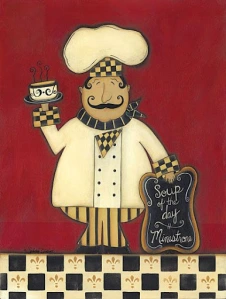By Patrick Hieger
When we first got on the phone to interview JP Caceres, he was talking about the annoyingly long and difficult process to get his paperwork sorted so he could return to the United States. Although he was born and raised in Bolivia, he spent the last 14 years of his life working and learning at some of the best bars and restaurants in Washington D.C. He wants to go back and continue the work he had started. However, being back home has its perks, and life in Bolivia, amidst the ever-expanding boom of incredible gastronomy happening across South America, is starting to grow on him.JP’s story is one of the American dream, and being forced to keep dreaming elsewhere, when the visa runs out. In just six months of being back in South America, he’s already managed to make his name well-known in the bar and restaurant world, doing classes, dinners, and pop-ups with friends in Peru, Argentina, and Bolivia. And, there’s plenty more to come. Read up as Caceres talks about his incredible beginnings in the restaurant industry, and how a lot of hard work, and a few lucky breaks, have brought him back home to keep teaching the invaluable lessons he’s learned along the way.
First of all, tell me where you’re from exactly.
I was born here, in Bolivia. In Cochabamba. I left Bolivia for the United States at the age of 19 and I moved straight to Washington D.C. That’s where my career started developing. I worked with Chef José Andres when he wasn’t yet Chef Jose Andres. He was an immigrant who had just moved from Spain, worked a little bit in New York, and wanted to make his name bringing tapas to Washington D.C. So, he was working the line, and I was bussing tables, at 19 years old.
How old are you?
Right now I’m 33.
Why did you move to the States?
Well, I had been visiting since I was 15 years old because I had family there. I had a visa to go visit for 10 years, and I kind of fell in love every time I went to the States. When I graduated in Bolivia, I started studying law and I enjoyed it, but it wasn’t something that I was very into. I was always intrigued by cooking. Since I was eight years old, while my cousins were outside playing ball, I’d spend time in the kitchen with my mother and grandmother, peeling potatoes, moving sauce, and so on. The kitchen was always my strength. When I graduated from high school, there was one culinary school in Cochabamba. My mother and I went to check it out and it was really bad. Nothing close to modern culinary schools. When my parents got divorced, my father backed out on my tuition, so I couldn’t go to school any more. So, the first thing I did with the money I had saved was to buy a ticket and take off. I didn’t tell anyone I was leaving until like two weeks prior.My mom was crying, my friends were sad, and my friends were wondering why I was doing it. I don’t think I realized then how much of a change I was making. I remember calling my cousin because he was a bartender at José Andres’ restaurant, at Jaleo, the one in downtown D.C., and I told him I needed a job and a place to crash. I slept on his couch for a few months, got a job, and little by little started moving forward. I worked a little in the kitchen, but the bar was something that kept calling my attention. Next thing I knew, I was 21, bar tending at one of José’s restaurants, Zaytinya, which means olive oil in Greek. At the time, that was one of the hottest spots in D.C. I was living the dream. Learning how to bar tend, in a beautiful restaurant in D.C., young, learning English, with money in my pocket. It was good times.
So did you end up going to culinary school or no?
No. All I know is from cooking. I moved around in kitchens a lot. And by being that type of person that, when I had a free shift, I’d volunteer to go in the kitchen and help out. I ended up marrying a chef, too, so that helped. When I was 25, I knew a lot about wine from having studied, and food, too, working for one of the hottest chefs in D.C., and that’s when things started going really well.
That’s incredible. The first chef and restaurant you worked for is José Andres.
That’s right, I feel very blessed.
Are you still friends with him?
Yes. I left his company when I was 25 because a GM position was offered to me. He had been my schooling. But José had a rule. You had to go two years in each position in order to grow. I was then lead bartender at his restaurant Oyamel, his Mexican concept. I wanted to be more, a floor manager or a GM. Another opportunity showed up and his upper management said they couldn’t let me jump so fast.
I guess I was young and starving for more, so I decided to leave. I remember very well. I called him to let him know that I was leaving. He showed up, with his first book, Made In Spain. He signed it to me, hugged me. Both of us, with tears in our eyes, looked at each other. He said, “Go learn and come back, because I need you.” I gave him a big hug because he was the schooling for my career, and I thank him so much for everything I have learned. HIs company was one of the best I’ve ever worked for in my life.
So did you ever go back?
Well, I was always invited back to their Christmas in July party. But, by the time I was 27, the company had changed a little. They had hired a new director of operations that didn’t know me. José’s partner Rob Wilder saw me at a party and told me I should come back. I applied to go back to Zaytinya but it didn’t feel the same, so I ended up not returning. I also didn’t feel that I was a great manager, so I wanted to go back to something that I truly loved, which was the bar, and they had no bar positions.
I ended up working for a guy who had formerly run the catering department at the Ritz Carlton, at his new place Againn. It was a British gastropub. Mark Walshberg, that was his name. He liked me, and brought a consulting company from San Francisco, the Bon Vivants. Josh Harris and Scott Bayer. Really passionate guys with a unique style of cocktails. I was working for the Bon Vivants, and in November, 2010, the Washington Post nominated me as one of the Top 5 New Mixologists, because we were the new blood that was giving the city a big comeback.
It had taken me 10 months. I was flat broke, my divorce had cost me a lot of money and pain, mentally and physically. That slowed down my growth as an individual in business. When I met these two guys who had opened a new bar, I knew a few techniques because I had already been learning. But imagine if someone opens a door for you and there’s just bottles and books and all this knowledge waiting for you. All I did was give myself up. I had nothing to lose. I had just lost everything, and I studied every single day. I studied and I read every single day. I drank cocktails. I created a habit of waking up every morning and reading for two hours. So, after 10 months I found one of the city’s best critics, Fritz Han, sitting and my bar. I was speechless.
When did you come back to Bolivia?
I came back in May of this year. I had become a resident alien through my ex wife. But when my divorce happened, the United States didn’t want me to stay anymore. I appealed, but it didn’t work out. So, the United States gave me an option to leave voluntarily. However, I was encouraged to come back and apply for an “Extraordinary Talent” visa. This is typically given to artists, actors, dancers. It’s been given to chefs, but never to mixologists. An immigration firm reached out to me and asked to represent me because I was a well-known bartender. They wanted to represent me because they said that being a mixologist does mean having an extraordinary talent. So, we’re in the process right now. It’s a long process, that costs a lot of money.
What I’m trying to say is that if I lived 15 years of my life in the United States, that’s where my home is. Do I love living in Bolivia right now? It’s beautiful. I love being a part of it. I came to Bolivia thinking I’ll go and hang out with my family, that the country didn’t have much to offer to me. I was just going to use my savings wisely and go back to the States by November. That was the plan. I left my consulting company with my two business partners. We currently consult for nine restaurants. I just wanted to get back as soon as possible.
Now I find myself back in my home country and it’s adopting me little by little. I think that I could be a rock star here and make a change in how people view mixology. I’m in a country that started creating its own gastronomy a few years ago, with people like Kamilla Seidler, Jorge Calvo, and others. There’s some incredible young people here whose goal is to make Bolivia a better destination for gastronomy. I’m thrilled to be a part of this group and work with them.
You saw last week what Jorge Calvo is trying to do with Encuentros. He’s not doing it for Jardín de Asia. He’s not doing it for Los Tajibos. He’s doing it for Bolivian gastronomy. I find myself with people like him and I’m very excited. I think they need my help to raise the level of cocktails, and then we can all grow stronger, together.
Absolutely.
I just signed a contract with Casa Real, the Singani producer. I’m the first national brand ambassador that they’ve ever had. I’m going next week to Tarija to learn more about the distillation from the master distiller. I have a contract with them for six months, and I plan to take my ‘Mix & Shake’ tour around the country to Santa Cruz, La Paz, and Cochabamba, and show bartenders what mixology is about.Most of the bars are still serving cocktails from the 70s and 80s, with fake colors. Like Sex on the Beach and those other disgusting cocktails. What I want to do for the country is to teach them something that I know, which is classic cocktails. Now that I’m in Bolivia, I think I can do something like that. I was giving a class a couple of days ago on basic cocktails, and the students’ eyes were glowing, like they were saying “I want to learn more.” I’m going to stay here for six months and do as much as I can to teach as many people as I can. I want to do for some young bartender the exact same thing that consulting group did for me back in 2008.
After being at Tambo and the event in Santa Cruz, we saw rooms full of eager, young talent. Bolivia wants to move ahead, and needs people like you to help.
I agree, but I think we have to be more organized as individuals. I want to be invited because I want to teach, not because I can bring a sponsor and have the event paid for. It should be industry people wanting to come and learn. You shouldn’t have to pay for education.
I think that events like Tambo should happen more often.
It’s going to take a lot of people working together to push South America ahead.
Yeah. I was talking to some people about my tour, asking if we could invite media, and they were looking at me like I’m fucking crazy. They told me to just send articles out, and I was like, “I’m not a fucking reporter. I’m not gonna send something out.” They told me that’s just how it works here, and I was wondering if they had any respect for journalists. They said there are none. In the United States we adored the journalists. Through them, we can send a message.
True. In the case of Peru, a lot of journalists and chefs left and went to Europe or other countries, and then they came back. It’s not to say we need to “change” South America, but if we can bring some best practices back, it will help things.
Yes. I was recently in Buenos Aires with Antonio Soriano at Astor. I was looking at their food, the “cocina de autor,” thinking there was a ton of style. I was happy to be at Mistura, part of the Latin America’s 50 Best, surrounded by chefs thinking how much it was like the James Beard House in the US.I think South America has talent, and I want to be a game changer. If I go back to the US to continue what I was doing there, I want to leave something nice here. If possible, I want to come back and start a business where I can keep coming back frequently.
Well, it seems like your legacy could be even bigger here. Like, a Bolivian leaves for 12 years, comes back, and turns Bolivia into a cocktail center. How cool would that be?
That would be a dream come true. When I got the brand ambassador job for Casa Real, I called my girlfriend in Pennsylvania and told her I got the job. She told me to take the Singani and show the rest of the world what it is.
Has Singani made it to the US yet?
Yes, it actually has. Right before I came back, I was in New York and I found myself with a bottle of Singani 63, which is owned by Steven Soderbergh. He came to Bolivia to film and fell in love with the spirit. He took the Casa Real black label and named it after his birth year. Now he’s exporting to the United States and distributing to Los Angeles and New York. Two of the power spots for cocktails in the US.
So, can I be a game changer? Absolutely. I’m here to work with whomever wants to work with me. I’m planning to take my Mix and Shake tour to more places like Peru and Argentina, and to teach about classic cocktails.
On the tour, are you going to pair with chefs, or is it just about cocktails?
Both. We’re offing a basic class, a ‘clase magistral’ about classic cocktails, which is four hours long and offers insight about classic cocktails. I also have another one about distillations. As part of the package we’re offering maridajes. I just did one at the Jardín de Asia in La Paz, nothing too crazy. We’re working with the client for what they want. I’m heading back to Santa Cruz soon to offer a class just to chefs. While I’m teaching, too, I’m inviting friends in to take the class, because the louder we are, the more effect we’ll have.
So you’re doing the class for six months?
Well, yeah. When I was in Argentina, a group of investors approached me and gave me a stake in a concept. I’m putting the concept together and they’re putting in the money and the location. I’m moving to Argentina from October to March to open a bar. It will be my first bar ever, and I’m very excited to do it.For the past few years, I’ve been going on about the concept I’d like to open if I could, but because of finances I could never do it. Especially in the United States, in D.C., to open a bar you need at least $750,000. It’s a lot of money here, it’s a lot of money there. I don’t have that money, and investors are reserved when it comes to that amount of money.
However, an American and an Argentine investor met me in Buenos Aires and we toured the city for a week, to see what they’re doing. Let’s be honest, they’re very strong. They’re the city that is representing South America right now when it comes to cocktails. But I think that they’re stuck in the speakeasy era, and they’re not moving forward. What we want to bring to them is a corner bar. A local bar. A bar where you go because it’s cool to hang out there, and they happen to make some pretty bad ass cocktails and really good food. We don’t want to put a label on anything. We don’t want it to be a speakeasy or a tiki bar. We don’t want it to be a post-prohibition cocktail bar. We want you to come and tell us what you want to drink.
I think that happened to New York City, as well, and to D.C. and to a lot of metropolitan areas. We got so geeked out about cocktails that we took ourselves way too seriously. You know what I mean. The whole mustache thing. And hating vodka. “I don’t make mojitos,” for example. We just want to develop a concept where you can come and have a cocktail. If you want to have a beer, absolutely, have a beer. But, guess what, I’m going to give you a very good beer. We know about beer and we know about wine. We’re beverage professionals and we want to take your experience to the next level. We want to help you in your adventure when it comes to drinking.
That’s what we’re trying to do in Buenos Aires. I’ll be there for either three or six months, until the program gets to a point where I can leave it with someone to run it. I’ll come back to check on things, or to innovate with new techniques and such. In the meantime, I also just came back from Peru with another opportunity to open a bar there.
That’s great.
I know I want to go back to the States because that’s my home, but South America is smiling at me. South America is asking me to stay. A lot of people are telling me not to leave. “Stay here, JP. We need you.” My girlfriend is also a sommelier, and she decided to move to Bolivia and live with me. I’m so excited because I’m going to have my work, my adventures, and now I’m going to have the lady of my dreams right next to me. Living a life in Bolivia, or wherever we go. And she’s down to do that. You’re not going to get rid of me so easily.
The more people we can make aware of South America, the stronger the continent will become. Especially a country like Bolivia, which the United States knows nothing about.
When I first moved here I started posting pictures and telling stories about drinks and food. I started getting some great feedback, people saying that they had no idea that Bolivia had these things. So, I just launched my website and I’m starting to write a little more. One of my pieces on how to make Bolivian chicha was just featured in an online magazine called We The Eaters.
I found myself talking to my grandfather and he had been making chicha for three generations. He’s 92. He’s had a couple strokes. But, he took a sip of my recipe and said, “Finally, my grandson is following my steps.” That was the best day, thinking that this is what I should be doing.
So, now I’m telling the story in pictures. I’m starting a line of bartender’s tools. I’m using only ingredients that you can find in South America. Finding ways to export them to the United States. I want to make a statement and show what Bolivia is. And if I can go to other countries and show them, I’m there. Via social media, people have shown a lot of interest in what I’m doing, so it’s very exciting.
![[JP Caceres]](https://i0.wp.com/comosur.com/wp-content/uploads/2014/10/Laying-in-a-bar.jpg)
![[JP Caceres]](https://i0.wp.com/comosur.com/wp-content/uploads/2014/10/Pisco-Sour-300x173.jpg)
![[JP Caceres]](https://i0.wp.com/comosur.com/wp-content/uploads/2014/10/JP-Head-Shot-239x300.jpg)
![[JP Caceres]](https://i0.wp.com/comosur.com/wp-content/uploads/2014/10/MenehuneGroup1.jpg)
![[JP Caceres]](https://i0.wp.com/comosur.com/wp-content/uploads/2014/10/SouthoftheBorder-300x225.jpg)





 Quiero darte las gracias de nuevo por haber pensado en mi para este premio. Los invito a visitar el blog de Marina, que estoy segura les gustara y sera de mucha utilidad para conservarse saludables.
https://consejonutricion.wordpress.com
Quiero darte las gracias de nuevo por haber pensado en mi para este premio. Los invito a visitar el blog de Marina, que estoy segura les gustara y sera de mucha utilidad para conservarse saludables.
https://consejonutricion.wordpress.com





